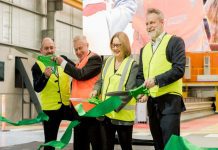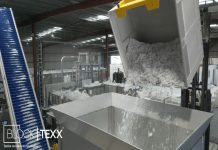
Media Release by Schneider Electric
Over half (52%) of Australian business leaders believe that a sustainability skills shortage is holding back their organisation’s energy transition, according to new research.
The survey of more than 500 business managers and decision-makers across corporate Australia found that 76% of businesses saw sustainable transformation as providing a competitive edge. However, it also highlighted that the majority are struggling with a lack of energy transition expertise and dedicated personnel to get their strategies in place.
The concerning findings are part of the new Sustainability Index: transforming intention to outcomes report from Schneider Electric, the global leader in digital transformation of energy management.
“Corporate Australia is committed to energy transition, but our research shows that without proper support and intelligence, a significant proportion are struggling to make an impact on their emissions,” says Gareth O’Reilly, Schneider Electric’s Pacific Zone President.
Over a tenth (14%) of business leaders admitted they don’t know where to start in setting carbon emissions reduction targets. A similar number (12%) were also unsure how to create an energy usage data capture and reporting strategy to understand their current emissions.
The findings may explain why only 14% of respondents said their companies had developed and published a climate action plan internally. As well as why, only 11% had publicly shared an intention to reduce their carbon emissions and just 7% had announced any commitment to reach net zero.
“Energy transition is inevitable for all businesses, what we need now is quick and effective outcomes. Key to this will be helping businesses understand their emissions and what to do to reduce them.” says Mr O’Reilly.
Currently carbon emissions are measured across three scopes. The first (Scope 1) covers emissions from a company’s owned or controlled resources. The second (Scope 2) are those generated from purchased energy, such as gas and electricity. Finally, Scope 3 emissions are created indirectly through a business’ value chain by third parties, such as its suppliers and end users.
The data shows that anywhere between a quarter to a third of business leaders are struggling to understand their emissions across these scopes:
- Scope 1 & 2:
- Natural gas (25%)
- Refrigerants (25%)
- Transport fuels (26%)
- Other liquid fuels (30%)
- Electricity (14%)
- Scope 3:
- Upstream leased assets (33%)
- Employee commuting (26%)
- Capital goods (24%)
- Business travel (21%)
- Franchises (35%)
- Investments (25%)
“When you consider the breadth of carbon emissions a company can contribute to, it’s clear that expert skills are essential to effective energy transition,” adds Mr O’Reilly. “Encouragingly, businesses are identifying the quickest way to gain the expertise they need is through third parties.”
More than a third (38%) of organisations confirmed that they are receiving external partner support in decarbonising. This included over half (55%) of Australia’s large companies with 200+ employees, almost half (48%) of medium-sized companies and 29% of small businesses with less than 20 employees.
Companies that engaged third-party experts were more likely to have implemented energy management systems (41%), IOT assets (40%) and specific software (35%). While companies which hadn’t gained assistance have lower levels of adoption (24%. 17% and 18% respectively).
Large companies were also most likely to have either identified their material risks and started to develop an action plan (35%), or to have already published one (23%).
“It’s make or break time for businesses to address energy transition and sustainability skills will be a leading determinant in those that get ahead and those that fall behind,” says Mr O’Reilly. “Businesses must secure their access to the decarbonisation expertise now, or potentially fall through the sustainability skills gap on the road to net zero,” he concludes.
For more information about energy transition and digitalisation visit www.se.com.
About Schneider Electric
Schneider’s purpose is to empower all to make the most of our energy and resources, bridging progress and sustainability for all. We call this Life Is On.
Our mission is to be your digital partner for Sustainability and Efficiency.
We drive digital transformation by integrating world-leading process and energy technologies, end-point to cloud connecting products, controls, software and services, across the entire lifecycle, enabling integrated company management, for homes, buildings, data centers, infrastructure and industries.
We are the most local of global companies. We are advocates of open standards and partnership ecosystems that are passionate about our shared Meaningful Purpose, Inclusive and Empowered values.
About the survey: this study of 500 senior decision-makers investigates Australia’s corporate position on sustainability and energy efficiency, and the challenges and opportunities that companies are facing. Respondents came from SMEs and major corporates, such as Woolworths, IBM, Toll, Coles, and the Commonwealth Bank. They belong to a wide range of industries, including construction, manufacturing, retail, financial and insurance services, health care and social services, and professional services.




















